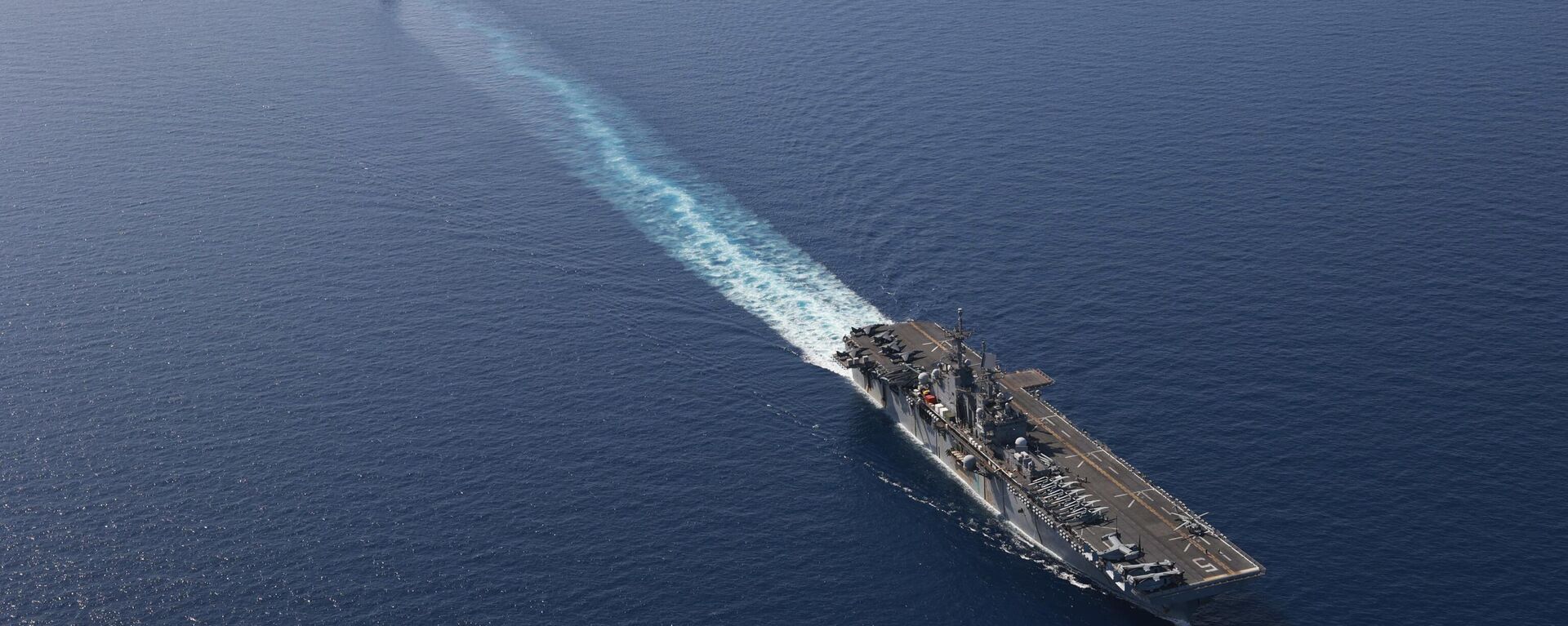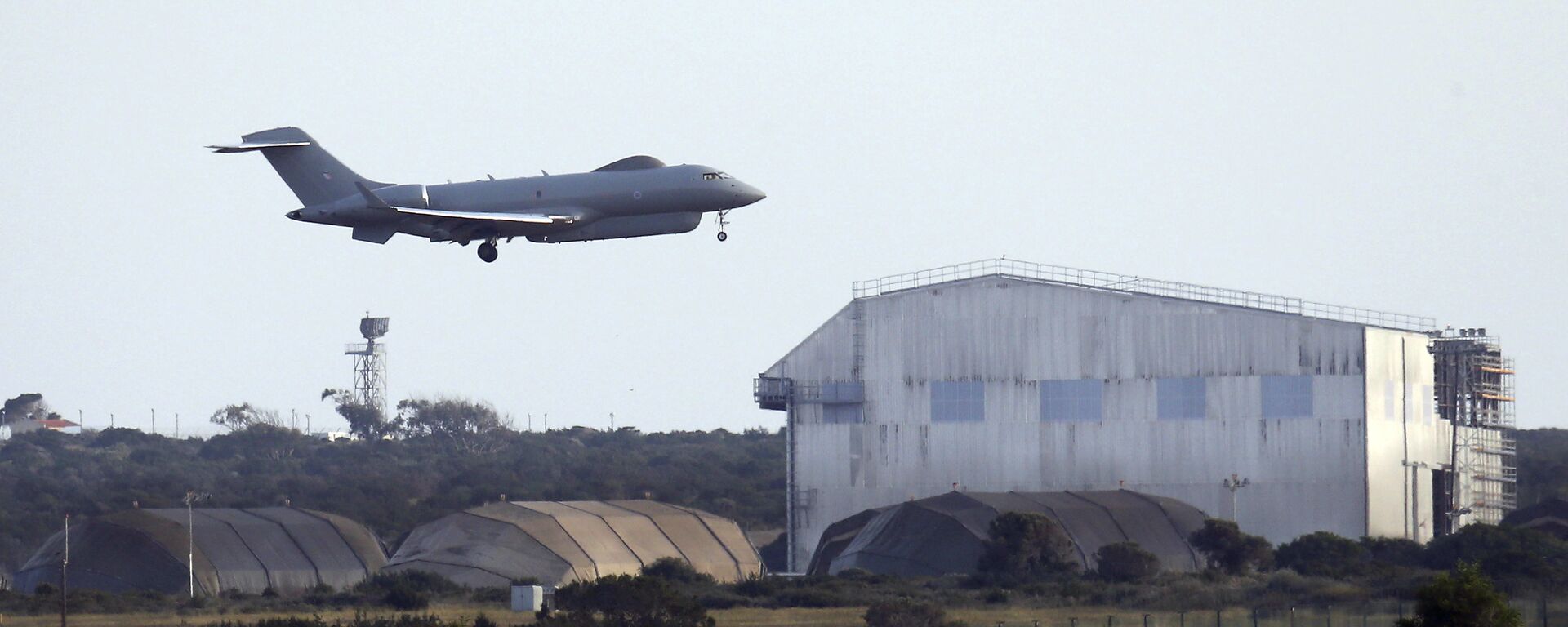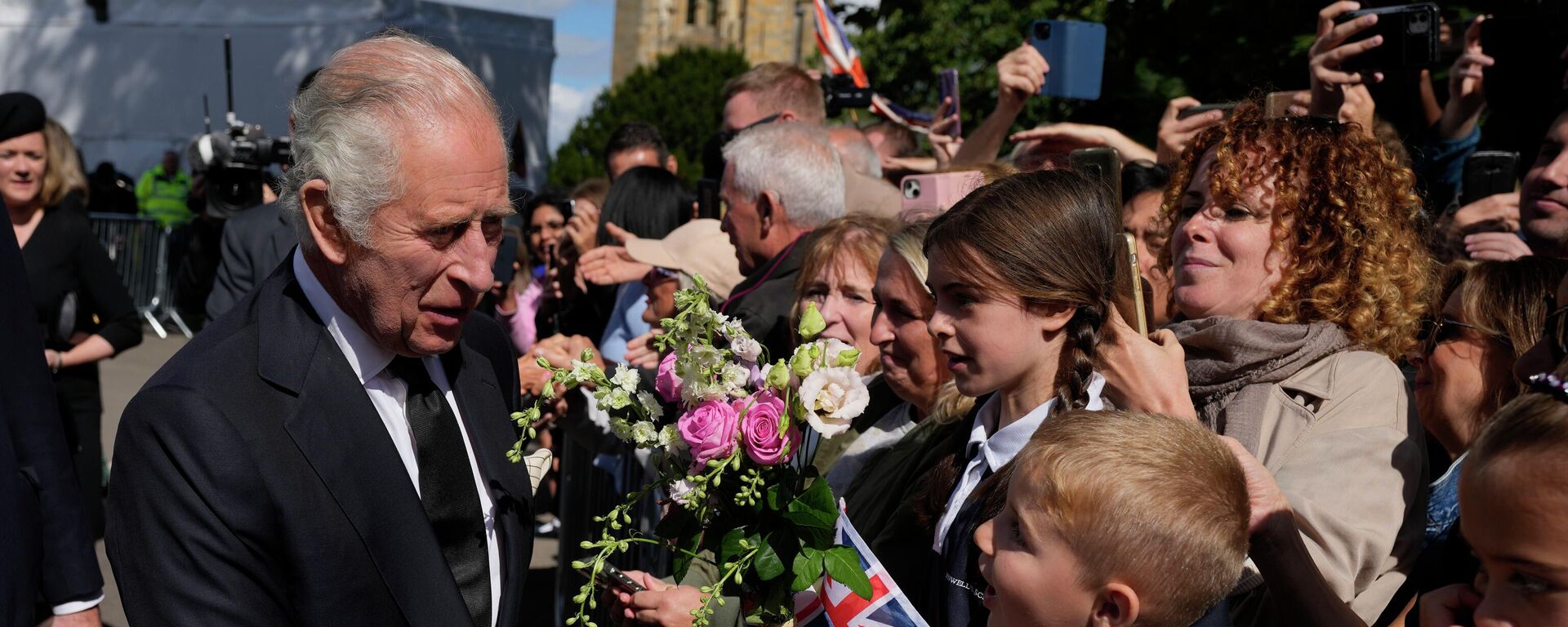https://sputnikglobe.com/20240616/british-army-delays-provision-of-new-badges-due-to-paranoia-over-chinese-spying-1118979716.html
British Army Delays Provision of New Badges Due to Paranoia Over Chinese Spying
British Army Delays Provision of New Badges Due to Paranoia Over Chinese Spying
Sputnik International
Sinophobia reached new heights in the former colonial superpower over fears of royal trinkets manufactured by Beijing.
2024-06-16T05:26+0000
2024-06-16T05:26+0000
2024-06-16T05:26+0000
analysis
queen elizabeth ii
united kingdom (uk)
china
cia
vietnam war
king charles iii
queen elizabeth
queen elizabeth ii
british army
https://cdn1.img.sputnikglobe.com/img/07e8/06/10/1118979273_0:1593:2047:2744_1920x0_80_0_0_e7f0d5e4179f102c7cf968da60d94e18.jpg
The British military has delayed the provision of new decorative badges to servicemembers over concerns Chinese manufacturers could have implanted them with spying devices.“British army regiments that sport a royal crest on their berets are switching ‘cap badges’ from a design featuring the St Edwards’ crown favoured by the late Queen Elizabeth to the Tudor crown chosen by the King. But the process has been complicated because the Yorkshire-based company contracted to make the badges, Wyedean Weaving, sources some of its manufacturing capacity from factories in China.”The newspaper cited an unnamed senior UK defense official who warned the badges could be embedded with GPS transmitters. The British armed forces have opted to delay the rollout while they consider how to respond to the concerns since the UK does not possess similar manufacturing capability to produce the cloth and metal insignias.The country has worked to replace everything from stamps to coins bearing the initials of the former British Queen Elizabeth II after her passing in 2022 at the age of 96. The death of the sovereign caused an outpouring of grief and tightly choreographed mourning ceremonies in the eccentric kingdom, with dozens of dissidents protesting the events being arrested.The modern United Kingdom purports to be a constitutional monarchy although the British crown technically enjoys certain legal rights to intervene in the politics of the country and the nations of the British Commonwealth, with Queen Elizabeth II playing a role in the US-backed coup against progressive Australian Prime Minister Gough Whitlam in 1975.The British government has never apologized for its role in the undemocratic ouster, fomented by the US Central Intelligence Agency (CIA) in retribution for the Australian leader’s stance against the Vietnam War.China has never invaded British territory. Meanwhile, the UK invaded and colonized the Chinese city of Hong Kong in 1841, only finally relinquishing its colonial grip in 1997. The UK periodically continues to attempt to interfere in Chinese politics, backing Western sanctions against the country over concocted security and human rights fears.In 1951 the UK voted in favor of United Nations General Assembly Resolution 500 to sanction Beijing in response to China’s assistance to Pyongyang during the Korean War, a conflict in which 20% of North Korea’s population was killed by Western-backed forces. The United States had imposed a strict embargo against China two years prior after the country’s popular Communist revolution, contributing to the deaths of tens of millions of Chinese people as the country suffered intense famine.Although the British crown is deified as a national symbol of the United Kingdom, the royal family is, in fact, German in ancestry.
https://sputnikglobe.com/20240613/russia-condemns-us-uk-pointless-strikes-in-red-sea-1118936436.html
https://sputnikglobe.com/20231207/mums-the-word-uk-refuses-to-answer-queries-about-us-use-of-base-to-support-israel-1115464482.html
https://sputnikglobe.com/20221207/british-man-arrested-after-second-king-charles-egg-throwing-incident-1105135891.html
united kingdom (uk)
china
2024
John Miles
https://cdn1.img.sputnikglobe.com/img/07e8/01/19/1116388787_0:0:1316:1316_100x100_80_0_0_77e70d36afd983012b1c5d38ddb84156.jpg
John Miles
https://cdn1.img.sputnikglobe.com/img/07e8/01/19/1116388787_0:0:1316:1316_100x100_80_0_0_77e70d36afd983012b1c5d38ddb84156.jpg
News
en_EN
https://cdn1.img.sputnikglobe.com/img/07e8/06/10/1118979273_0:1401:2047:2936_1920x0_80_0_0_e750ed7665f65b0f06d664b8309f25e5.jpg
John Miles
https://cdn1.img.sputnikglobe.com/img/07e8/01/19/1116388787_0:0:1316:1316_100x100_80_0_0_77e70d36afd983012b1c5d38ddb84156.jpg
british army cap badges, chinese spying, uk paranoia, fear of china, sinophobia, anti-china sentiment, anti-chinese sentiment, anti-chinese bias, british army, british military, british military capabilities, military production, british economy
british army cap badges, chinese spying, uk paranoia, fear of china, sinophobia, anti-china sentiment, anti-chinese sentiment, anti-chinese bias, british army, british military, british military capabilities, military production, british economy
Sinophobia reached new heights in the former colonial superpower over fears of royal trinkets manufactured by Beijing.
“The rollout of British military badges redesigned for the accession of King Charles has been delayed over fears the new insignia could be made in China and risk allowing the Beijing authorities to insert tracking devices,” reported a British newspaper this week.
“British army regiments that sport a royal crest on their berets are switching ‘cap badges’ from a design featuring the St Edwards’ crown favoured by the late Queen Elizabeth to the Tudor crown chosen by the King. But the process has been complicated because the Yorkshire-based company contracted to make the badges, Wyedean Weaving, sources some of its manufacturing capacity from factories in China.”
The newspaper cited an unnamed senior UK defense official who warned the badges could be embedded with GPS transmitters. The British armed forces have opted to delay the rollout while they consider how to respond to the concerns since the UK does not possess similar manufacturing capability to produce the cloth and metal insignias.
“The issue encapsulates a broader confusion among western countries about whether to treat China, the world’s second-biggest economy, as a friendly trading partner or an implacable foe,” the newspaper noted, demonstrating the paranoid fear and insecurity of leaders of a country that at one point in time ruled over large swathes of the world (China is actually the world’s largest economy, measured by Purchasing Power Parity).
China has never invaded British territory. Meanwhile, the UK invaded and colonized the Chinese city of Hong Kong in 1841, only finally relinquishing its colonial grip in 1997. The UK periodically continues to attempt to interfere in Chinese politics, backing Western sanctions against the country over concocted security and human rights fears.
In 1951 the UK voted in favor of United Nations General Assembly Resolution 500 to sanction Beijing in response to China’s assistance to Pyongyang during the Korean War, a conflict in which 20% of North Korea’s population was killed by Western-backed forces. The United States had imposed a strict embargo against China two years prior after the country’s popular Communist revolution, contributing to the deaths of tens of millions of Chinese people as the country suffered intense famine.





